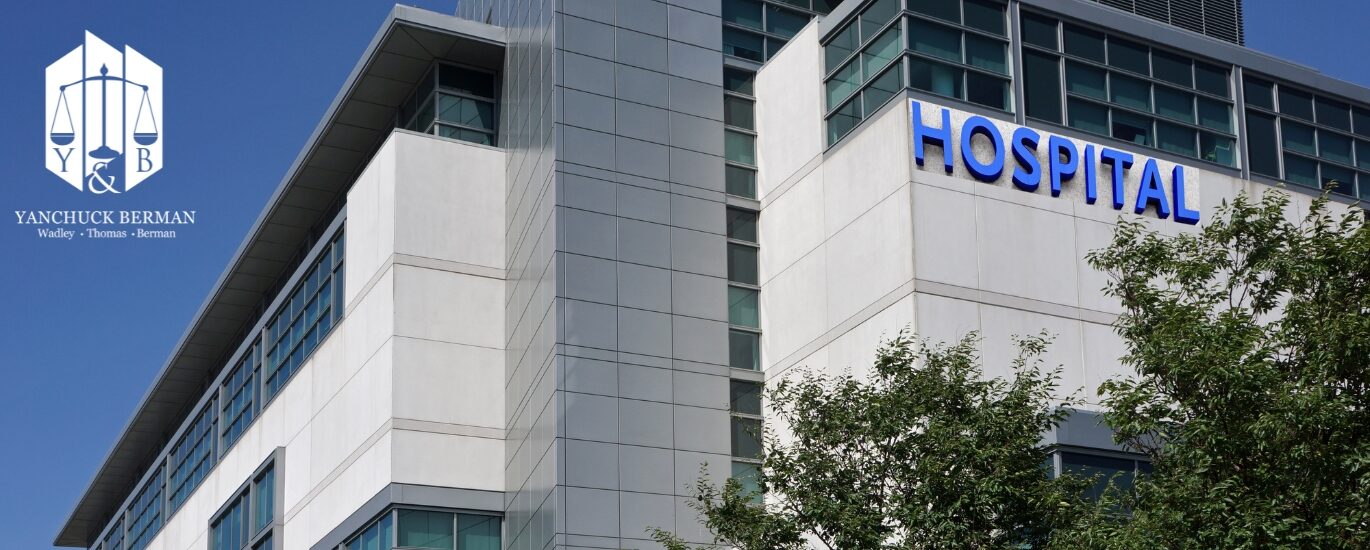


If you sustain severe injuries in a car accident, you’ll probably be taken to the closest hospital by emergency services. But what about cases where there’s no immediate pain or the victims do not appear to be visibly injured? Many people who are involved in car accidents skip going to the hospital. Some people think that the injuries will heal on their own, while others don’t even know they’ve been injured.
Nonetheless, the best course of action is to seek immediate medical attention as soon as you can after an accident. A thorough medical evaluation and treatment are beneficial not only for your health, but also for any personal injury claim you might file at some point down the line.
Here are the reasons to go to the hospital after an accident, even if you don’t have obvious injuries.
You should go to the hospital if you have serious injuries, minor injuries, or no injuries at all. The need for prompt medical care can be obvious in some cases. If you have areas of paralysis, a bone fracture, metal confusion, or severe pain, for instance, there’s little question you’ll benefit from emergency care.
In other cases, injuries may appear minor or not be present at all. During traumatic events, the body releases adrenaline and endorphins, which can mask the immediate pain of an injury. Some injuries may not be obvious until several days or weeks later.
Concussions, internal organ damage, whiplash, and soft tissue injuries may manifest as minor pains at first. The thought of a serious injury can also lead to denial and wishful thinking, which can interfere with treatment and rehabilitation.
Untreated injuries can lead to more serious complications that will require even more care. As such, it’s important to get examined by a doctor as soon as possible to make sure all injuries are properly diagnosed and treated.
If you get into a car accident and have to file an insurance claim, you expect your policy to pay off. Unfortunately, insurance companies often look for reasons to deny or devalue claims. The insurance defense lawyer has one job: to mitigate the financial exposure to the insurer. When you fail or delay obtaining medical care, the lawyer may assert one or more of these defense strategies:
Failure to go to the hospital significantly impacts your ability to receive compensation if injuries manifest into something serious. The insurance company will take advantage of every opportunity to deny or devalue your claim based on your tardiness in seeking medical care. Trying to tough it out can strengthen the insurance company’s argument against you.
After a traumatic car accident, nothing would be more interesting than recovering from your injuries. But when you’ve sustained injuries due to another person’s negligence, you need fair compensation for your losses. If you decide to file a claim, your medical records will show the type and extent of your injuries and serve as evidence for your claim.
Patient files, doctor’s notes, and X-rays can serve as proof that you’ve suffered as much as you say you have. If you don’t have the right medical records, it will be challenging to prove your case. Even if you sustained severe injuries.
Going to the hospital for physical and emotional wounds is your best bet to ensure you obtain every record you need to pursue justice and fair compensation.
Note: You want to make sure that all your doctor’s treatment records accurately describe your car accident, your symptoms, and your medical history (especially if you have any pre-existing conditions).
Florida’s personal injury protection (PIP) insurance has a 14-day rule, which requires drivers to seek medical care within two weeks of their car accident. The rule exists to ensure that PIP claims are valid and any existing injuries are not worsened by not getting immediate medical care.
If you do not seek medical care within 14 days, you may lose your right to receive compensation entirely. PIP insurance covers your medical expenses up to the $10,000 limit, regardless of who is at fault in the accident.
Here’s what you need to do to ensure compliance with the 14-day PIP rule:
The importance of going to the hospital after a car accident cannot be overstated, but the same can be said about seeking legal support. At Yanchuck Berman, our St. Pete car accident attorneys have the knowledge and experience needed to succeed in a personal injury case and get you the compensation you deserve.